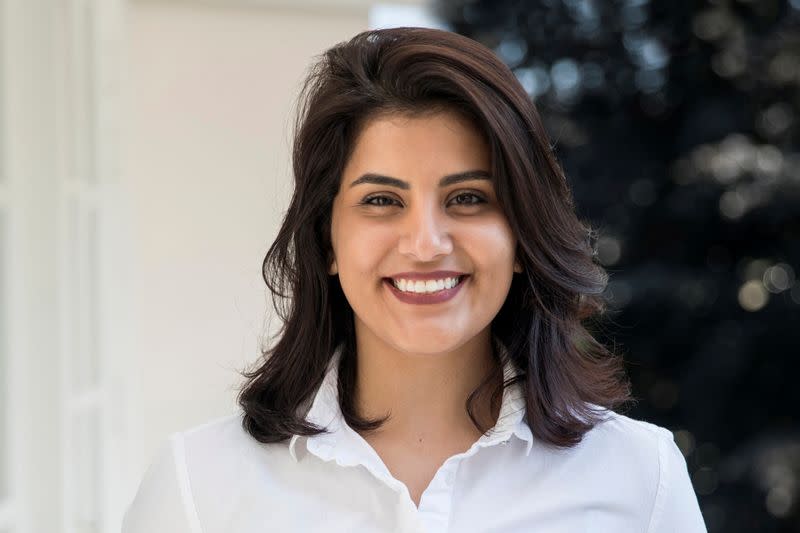By Raya Jalabi and Marwa Rashad
DUBAI (Reuters) – A Saudi court on Monday sentenced prominent women’s rights activist Loujain al-Hathloul to five years and eight months in prison, local media reported, in a trial that drew international condemnation while Riyadh faces further scrutiny. from the USA.
Hathloul, 31, has been in detention since 2018 after her arrest along with at least a dozen other women’s rights activists.
The verdict, reported by the Sabq and al-Shark al-Awsat newspapers, represents an initial challenge to Crown Prince Mohammed bin Salman’s relationship with U.S. President-elect Joe Biden, who criticized Riyadh’s human rights record.
Hathloul was accused of trying to change the Saudi political system and undermine national security, local media said. The court suspended two years and 10 months of his sentence – or most of the time he already served his sentence on May 15, 2018 – with parole to follow.
Hathloul could therefore be released around the end of February 2021, with a possible return to prison if she commits a crime, the newspapers said.
United Nations human rights experts called the charges “spurious” and, along with leading human rights groups and lawmakers in the United States and Europe, called for his release.
Human rights groups and his family say that Hathloul, who defended women’s right to direct and end the kingdom’s male guardian system, was subjected to abuse of electric shocks, drowning, whipping and sexual assault. Saudi officials denied the charges.
Hathloul’s sentence came almost three weeks after a Riyadh court arrested US-Saudi doctor Walid al-Fitaihi for six years, despite US pressure to release him, in a case that human rights groups considered politically motivated.
Foreign diplomats said the two trials aim to send a message at home and abroad that Saudi Arabia will not yield to pressure on human rights issues.
Riyadh could also use the sentences as leverage in future negotiations with the Biden government, a diplomat said.
Biden said he will have a firmer line with the kingdom, an oil titan and a major buyer of American weapons, than President Donald Trump, who was a strong supporter of Prince Mohammed.
CHARGE SHEET
Hathloul gained prominence in 2013, when he began to publicly campaign for women’s right to drive in Saudi Arabia.
Saudi officials said the arrests of women activists were made on suspicion of damaging Saudi interests and offering support to hostile elements abroad. Some of the detained women were released while the trials continued.
Activist Nassimah al-Saadah was sentenced to five years in prison, with two suspended in late November, according to Human Rights Watch (HRW).
Hathloul’s family made public their indictment sheet after their case was transferred to the Riyadh Specialized Criminal Court, originally set up to prosecute suspected terrorists, but which has been used in the past decade to prosecute alleged dissidents.
The main charges against Hathloul, who served a sentence of up to 20 years, include: attempting to change the Saudi political system, calling for an end to male custody, attempting to apply for a job at the UN, participating in digital privacy training, communicating with international human rights groups and other Saudi activists.
Hathloul was also accused of speaking to foreign diplomats and the international media about the rights of women in the kingdom, including Reuters, who declined to comment.
“The case against Loujain, based solely on his human rights activism, is a caricature of justice and reveals how deep they will go to root out independent voices,” said Adam Coogle of Human Rights Watch. The Saudi government’s media office did not immediately respond to a request for comment from Reuters.
(Reporting by Raya Jalabi and Aziz El Yaakoubi in Dubai and Marwa Rashad in London; written by Raya Jalabi; Editing by Gareth Jones and Angus MacSwan)
